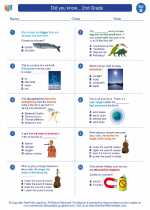Biological Systems
A biological system is a complex network of biological entities such as cells, tissues, organs, and organisms, and the interactions between them that allow them to function as a whole. These systems work together to perform specific functions necessary for the survival and well-being of an organism. Understanding biological systems is essential in the study of life sciences and is crucial for understanding how living organisms function and interact with their environment.
Key Concepts
- Organization: Biological systems are organized in a hierarchical manner, from the cellular level to the organismal level. Each level of organization contributes to the overall functioning of the system.
- Interdependence: The components of biological systems are interdependent, meaning that they rely on each other to function properly. Disruption of one component can affect the entire system.
- Homeostasis: Biological systems maintain internal stability through a process called homeostasis, which involves regulating and maintaining a constant internal environment despite external changes.
- Feedback Mechanisms: Biological systems often utilize feedback mechanisms to maintain balance and respond to changes in their environment.
- Emergent Properties: Biological systems exhibit emergent properties, which are characteristics or functions that arise from the interactions of the system's components and are not present in the individual components themselves.
Study Guide
Here are some key points to focus on when studying biological systems:
- Identify and understand the levels of organization within biological systems, from cells to organisms.
- Explore the interdependence of components within biological systems and the consequences of disruption.
- Examine examples of homeostasis in biological systems and how they maintain internal stability.
- Understand the role of feedback mechanisms in biological systems and how they contribute to maintaining balance.
- Investigate emergent properties and how they manifest in various biological systems.
By grasping these key concepts and focusing on the study guide, you can develop a comprehensive understanding of biological systems and their importance in the study of life sciences.
.◂Science Worksheets and Study Guides Second Grade. Did you know... 2nd Grade
Study Guide Did you know... 2nd Grade
Did you know... 2nd Grade  Worksheet/Answer key
Worksheet/Answer key Did you know... 2nd Grade
Did you know... 2nd Grade  Worksheet/Answer key
Worksheet/Answer key Did you know... 2nd Grade
Did you know... 2nd Grade  Worksheet/Answer key
Worksheet/Answer key Did you know... 2nd Grade
Did you know... 2nd Grade  Vocabulary/Answer key
Vocabulary/Answer key Did you know... 2nd Grade
Did you know... 2nd Grade 

 Worksheet/Answer key
Worksheet/Answer key
 Worksheet/Answer key
Worksheet/Answer key
 Worksheet/Answer key
Worksheet/Answer key
 Vocabulary/Answer key
Vocabulary/Answer key

The resources above cover the following skills:
Earth Systems Science
Weather and the changing seasons impact the environment and organisms such as humans, plants, and other animals. Students can:
Analyze ways in which severe weather contributes to catastrophic events such as floods and forest fires